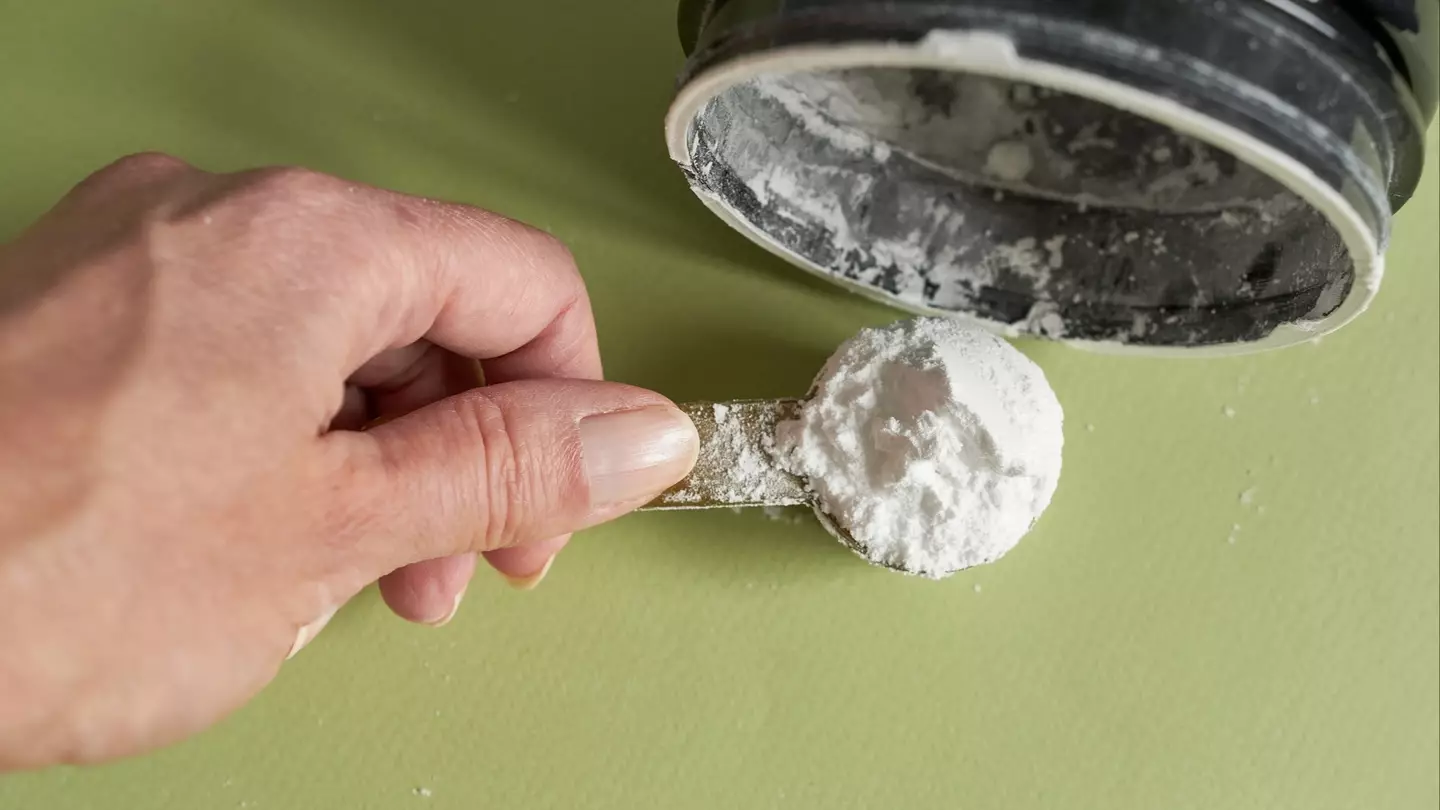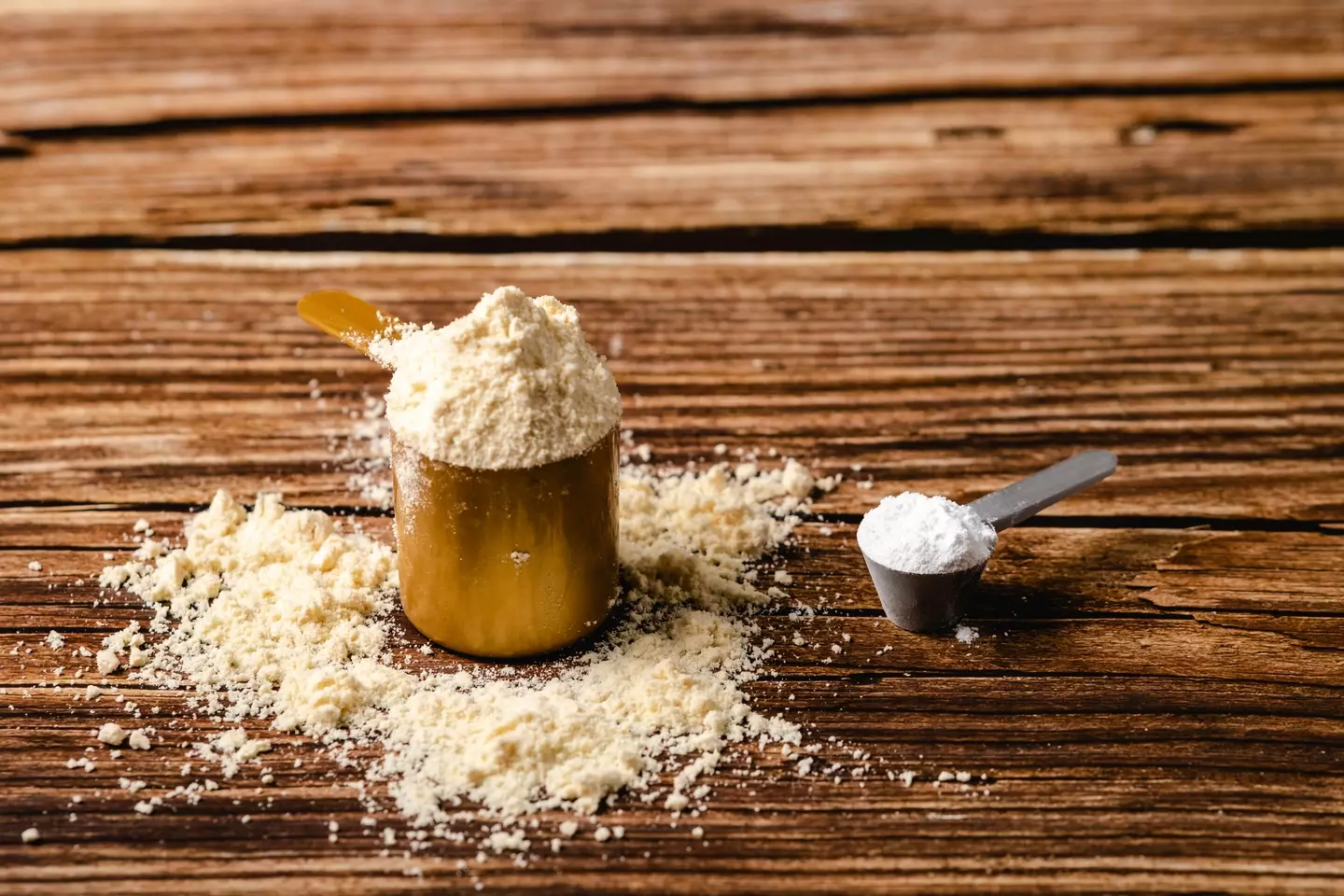
A study has discovered that five grams of creatine isn't actually enough, despite long-standing recommendations from manufacturers over the years.
It feels like almost everyone is on a health kick these days, whether it be eating the right things or hitting the gym several times a week, some almost feel guilty if they spend a chilled night in.
But an increasing amount of people are investing in their fitness and wellbeing with new sportswear and more than ever before, supplements to help them reach their goals.
You've probably seen it with those in the lifestyle - protein powder, protein bars, electrolyte boosters, and of course, creatine.
Advert
People take creatine primarily to maintain a continuous energy supply to the muscles during exercise, increasing muscle growth and speeding up the muscle recovery, as small tears in the muscle fibres occur when working out.

For those who take it, you'll probably know about that tingly feeling you get throughout your body shortly after taking it too.
But while the majority of scientifically-backed advice states that you should take about five grams of the stuff in a day to get optimal results, it turns out that it might be all wrong.
While some disturbing truths have come out about protein supplements in recent weeks, details have come out about creatine in particular, and that we should be taking more to experience more improvements.
A narrative review which was published in the Advanced Exercise and Health Science journal has revealed that five grams simply isn't enough, and that you may need to take more to benefit from increased longevity, improved brain function, stronger bone structure, and better muscular performance.
Ryan Dabbs, a senior writer at Men's Health, even took it upon himself to take 25g of creatine a day for 28 days to see what happened and experienced an increase in gym performance 'almost immediately', as he was coming off a holiday and was getting in shame for a marathon.
He said that delayed onset muscle soreness had less of an impact, with recovery feeling easier, while he claimed that it helped in a mental aspect, improving his motivation to get to the gym regularly - though he did report feeling more dehydrated over the period and that taking 25g at once was overwhelming for his body.
So the five grams figure, which has stood following research in 1992, might not be Gospel after all, as Dr Darren Candow, the author of the narrative review, explained on FoundMyFitness podcast: "Five grams per day is a great start, but it’s optimised for skeletal muscle only.
"If you want full-body benefits – bone, brain, immune, anti-inflammatory – you’ll need more."

Candow added that you should take at least 0.1g of creatine for every kilogram you weigh, each day, to experience the best skeletal muscle benefits, so 70kg would equate to seven grams per day.
The review even suggests that this could be bumped up to 0.14g per kilogram when taking bone benefits in older adults into account, as the minimum needed per day is set at four grams per day, though this should go up when you're under acute stress.
"At 10 grams per day, you’re not just topping off muscle creatine: you’re potentially reaching the bone, brain, and other tissues that are often overlooked," he added.
Dr Candow went on: "The lowest effective dose for bone strength was 8g daily; 5g didn’t move the needle. If you want to preserve skeletal strength, especially around the hips, higher daily doses are required – and always in combination with weight-bearing exercise."
There isn't an optimal dose outlined by the research though, with it outlining guidelines users should follow to hit health goals, as genetics and biological factors all play a part.
Topics: Food And Drink, Health, Lifestyle, Science